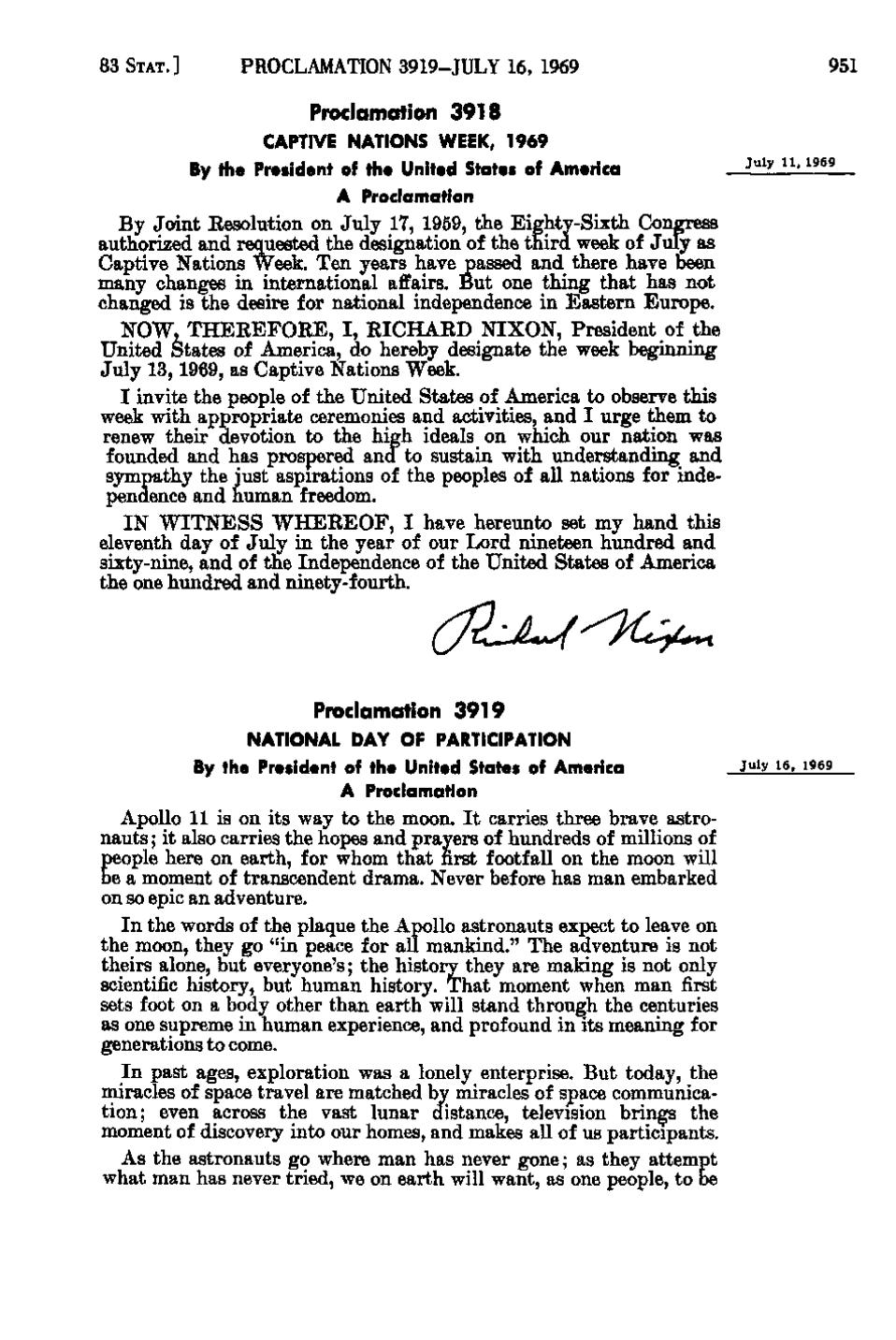83 STAT.]
PROCLAMATION 3919-JULY 16, 1969
951
Proclamation 3918 CAPTIVE NATIONS WEEK, 1969 By the President of the United States of America
July 11, 1969
A Proclamation
By Joint Resolution on July 17, 1959, the Eighty-Sixth Congress authorized and requested the designation of the third week of July as Captive Nations Week. Ten years have passed and there have been many changes in international affairs. But one thing that has not changed is the desire for national independence in Eastern Europe. NOW, THEREFORE, I, RICHARD NIXON, President of the United States of America, do hereby designate the week beginning July 13, 1969, as Captive Nations Week. I invite the people of the United States of America to observe this week with appropriate ceremonies and activities, and I urge them to renew their devotion to the high ideals on which our nation was founded and has prospered and to sustain with understanding and sympathy the just aspirations of the peoples of all nations for independence and human freedom. IN WITNESS WHEREOF, I have hereunto set my hand this eleventh day of July in the year of our Lord nineteen hundred and sixty-nine, and of the Independence of the United States of America the one hundred and ninety-fourth.
C/IJL/^^K:/^ Proclamation 3919 NATIONAL DAY OF PARTICIPATION By the President of the United States of America A Proclamation
Apollo 11 is on its way to the moon. It carries three brave astronauts; it also carries the hopes and prayers of hundreds of millions of people here on earth, for whom that first footfall on the moon will be a moment of transcendent drama. Never before has man embarked on so epic an adventure. In the words of the plaque the Apollo astronauts expect to leave on the moon, they go "in peace for all mankind." The adventure is not theirs alone, but everyone's; the history they are making is not only scientific history, but human history. That moment when man first sets foot on a body other than earth will stand through the centuries as one supreme in human experience, and profound in its meaning for generations to come. In past ages, exploration was a lonely enterprise. But today, the miracles of space travel are matched by miracles of space communication; even across the vast lunar distance, television brings the moment of discovery into our homes, and makes all of us participants. As the astronauts go where man has never gone; as they attempt what man has never tried, we on earth will want, as one people, to be
juiy le. 1969
�
